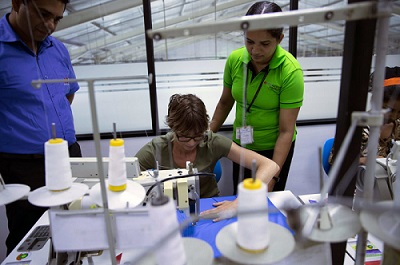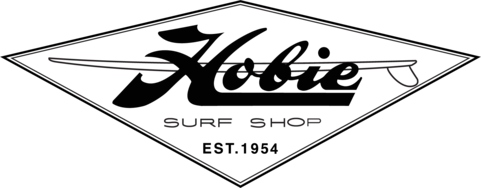Patagonia Sustainability
The concept for Patagonia was born amongst the hulking gray boulders and vertical granite walls of Yosemite Valley by the visionary businessman Yvonne Chouinard during the golden age of “big wall” rock climbing. Chouinard, disappointed by the days’ shoddy climbing equipment and disfiguring climbing technique, began forging his own “clean climbing” equipment in 1972. Forged at his Ventura California, Skunk Works, and tested through his Yosemite experiments, his designs expanded the vertical world of climbing and mountaineering possibilities. By the 1980s, Chouinard’s application of quality, clean climbing accessories and clothing made operating in the mountains a safer, warmer, and more enjoyable experience. His groundbreaking designs and use of polyester in clothing, later termed Capilene and Synchilla, changed the landscape of not only surviving inhospitable environments, but developed a fashion statement for recreational and urban use. Now in the new millennia, Patagonia is leading the world with its renowned pursuit of quality, customer satisfaction, and environmental resolve.
Patagonia’s belief in supporting the planet and environment that surrounds us began on day one of its formation. By the early ‘70s, the Ventura River, known to be a popular spawning ground for Steelhead Salmon, was becoming less so due to human incursions on the river, notably damming. Salmon populations dwindled at an alarming rate. Awestruck, Chouinard and other Patagonia leadership lent their support to the Friends of the Ventura River, formed by a 25-year-old biology student, Mark Capelli. Through their grass roots efforts the Friends of the Ventura River were able to effectively clean the river, reduce or remove dams and bring back the wild Steelhead Salmon populations.
Fast-forward to 1994. Patagonia had switched every product in its line over to a completely organic or recycled blank. Today, Patagonia’s pursuits lie in their 1% for the planet initiative, the ethics of Fair-Trade manufacturing that promotes the well-being of factory employees in the factories it uses world-wide, and its enduring mantra of doing the least amount of harm possible while doing business in a highly competitive world. Any avid outdoors enthusiasts or environmental supporter can turn to Patagonia’s website or social media outlets to learn more about the plethora of on-going grass roots programs the company’s involved in worldwide; a better partner Hobie could never have.
Company Interior Practices
- Minimizing Carbon Footprint
- Renewable Energy Use
- During 2015, generated 203,502 kWh of onsite renewable energy
- Patagonia Retail Locations
- Preservation of existing and unique buildings
- Drive-Less Program
- Monetary incentive to employees to carpool, ride a bike, skateboard, or take public transportation
- First year, reduced carbon emissions by 500,000 lbs. and saved 25,700 gallons of fuel
- Paper Policy
- Office material and catalogs printed on paper of the highest, post-consumer, waste level or recycled materials


Company Exterior Practices
- 1% for the Planet
- Patagonia’s initiative in 1985, pledge of 1% of sales to the preservation and restoration of the natural environment
- In 2002, “1% for the Planet” nonprofit organized by Yvon Chouinard and, owner of Blue Ribbon Files, Craig Mathews.
- Today, “1% for the Planet” has contributed $100 million to nonprofit environmental groups
- Tools for Grassroots Activists Conference
- In 1994, an organizational support system which continues provide tools for activists
- Attract new members
- Spread information on important issues
- Reach-out to donors
- Inspire everyday citizens to act
- Fair Trade Certified
- On a variety of products, including the Patagonia Surf line, Patagonia pays a premium on materials and services offered through Fair Trade factories.
- A portion of this Patagonia’s premium, goes, directly, into an account which benefits the worker in a variety of ways.
- Social, economic, and environmental community projects
- Health or child care
- Cash bonus
Product Features
- Patagonia’s innovative commitment to develop materials that endure for a lifetime
- A product that lasts reduces the environmental footprint of building a multitude of similar, shoddy, products
- Natural Fibers
- Hemp
- Organic Cotton
- Yulex (e.g. wetsuits)
- Recycled Fibers
- Nylon
- Polyester
- Down (e.g. down-sweater jacket)
- Iron-Clad Guarantee
Patagonia guarantees customer satisfaction for each product in their line. Put simply, if the item does not perform to the customer’s standards at the time of or after purchase, Patagonia will repair, replace, or refund the item. That’s one heck of a guarantee and is a testament to the integrity of the brand
- Recycle & Reuse
If a customer finds themselves dissatisfied with the fashion or sizing of his or her old Patagonia garment… Recycle it! Patagonia will offer a credit or exchange on another vintage or equal value item. It is better for an item to be recycled or worn; rather than ending up in a landfill.
Did you know....
In, 2014, Patagonia produced 11, Fair Trade, yoga styles in Pratibha Syntax, India. Since then, the Fair Trade line has grown to 192 styles as of last fall. This collective effort has raised more than $430,000 for 7,000 workers. One group opted for a child care center at work; another group purchased raincoats to weather the annual ebb and flow of the monsoon season.

